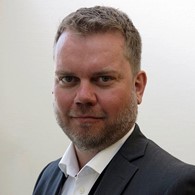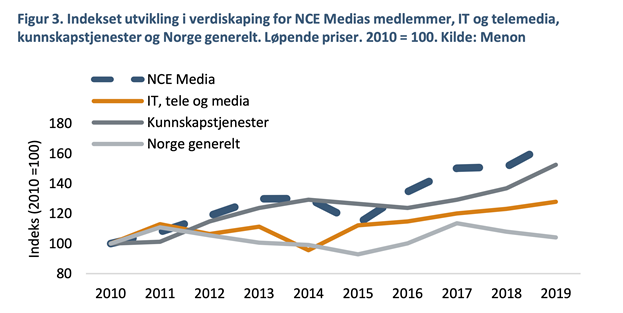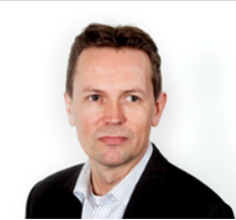The analysis from Menon is conducted from April to June 2021, and shows that the ripple effects from the activities generated by cluster companies are significant.
Value creation
The media cluster activities generate more than 16 billion in value creation annually, divided into 8.4 billion in direct value creation in the cluster companies and an added 7.9 billion in indirect effects. In addition to the 4,900 employees in the media companies, Menon finds that deliveries to the industry generate an additional 6,500 employees in other companies and industries.
Furthermore, the report also shows that while the ripple effects are most significant in and around Bergen, the indirect effects are also substantial in Oslo and Rogaland.

– The cluster represents an environment with a high level of activities and close collaboration between the different companies and institutions. It is both inspiring and motivating to see that this generates such a substantial amount of varying ripple effects, both in terms of turnover, and employment, says Myklebust (photo to the right).
– Although this has been a demanding year for many, especially for the tech companies, the cluster thrives and advances, and is committed and engaged in developing the next-generation media technology.
Substantial synergies
The cluster members also generate other societal benefits, Menon's report shows. These societal benefits are difficult to quantify, but are equally crucial for knowledge development, innovation activity and growth. The core of any cluster project is collaboration-based activities that realize synergies across and between members. All necessary mechanisms for this are present in NCE Media, the report shows, and help accomplish the cluster's synergies and positive contribution to society.

Indexed development of value creation for NCE Media's members. Source: Menon.
A successful cluster
On behalf of Innovation Norway, Menon Economics also has performed a ten-year evaluation of NCE Media, the cluster project supported and partly funded by Innovation Norway. This evaluation also points to excellent results for the cluster. In their report, Menon writes:
"As we see it, the cluster deserves credit for the way they have adapted to the rapid development in the media industry and managed to find relevant areas where the cluster members can collaborate. In this way, the cluster has also managed to stay relevant throughout the period".
We also find that the cluster project has led to the companies gaining national relations and networks they otherwise would not have. Overall, this appears to be an efficient and competent cluster with a large capacity. This is also reflected in the fact that the cluster was gold certified by ESCA in 2020.
The report also shows:
- The cluster has met all performance targets, and the goal achievement is considered "very good". The Media Lab Sandbox, in particular, proves very successful.
- The cluster participants experience a strong community and a cluster identity that has created a closer bond between the various actors in the cluster and a positive contribution to the innovation ecosystem.
- The cluster project is considered as relevant now as it was at the start 10 years ago. The cluster members have a lot to collaborate on, and there are significant benefits from collaborating.
- NCE Media scores in the higher tier, and often at the very top, compared to other evaluated clusters.
- The members are generally highly satisfied. An overwhelming majority, 81 percent, agree that the collaboration in the cluster is characterized by openness and information sharing. 70 percent believe that trust between the players has increased as a result of the cluster's presence. A correspondingly large part believe that through the cluster, a sense of community has developed in the business environment that did not previously exist, in other words, a cluster identity.
A need-to-have
– I am pleased and relieved to learn the results from the Menon evaluation, says CEO Anne Jacobsen.
– The cluster members put a lot of effort and energy into the different collaborative innovation projects, and it is great to see that the outcomes and effects for the involved companies are so noticeable. I am also thrilled to see our members value this "cluster family" highly and that so many of them emphasize that the media cluster is a "need to have" rather than a "nice to have". Together we have met all targets and KPI's for the first ten years, and we now continue onto our next ten-year journey, aiming to grow further, both national and international, and to solve the main industry challenges ahead.
Stronger national presence
At the same time, the report also points to areas of improvement and gives the cluster organization valuable input to work with for the next couple of years, both regarding national reach and member growth. The cluster now has around 100 members from Tromsø up north to Kristiansand in the south and several international members. Twenty members are located in Oslo and nine in Stavanger.
– The evaluation shows that we still have a way to go when it comes to our national reach. This has been especially difficult during Covid when no one has been able to travel. Going ahead, and as soon as the covid restrictions lift, the cluster team will be present in both Oslo and Stavanger on a regular basis and will run different activities there, which I really look forward to, Jacobsen says.
At the same time, different media cluster events, projects, and networks will remain digital or hybrid, also post Covid. One example Jacobsen points out is the Media Cluster Journalism Lab that holds various tools and activities, including a national network of data journalists and developers (in Norwegian), bringing together 80 people from publishers all over Norway on a monthly basis for learning and sharing. The Media Cluster is also part of the international JournalismAI project, involving publishers Dagens Næringsliv, Fevennen and Stavanger Aftenblad, as well as tech startup Factiverse.
The Norwegian Innovation Cluster Program
The Norwegian Media Cluster has been a part of the national program Norwegian Innovation Clusters, and the cluster has status as an NCE (Norwegian Center of Expertise) from Innovation Norway.
– I want to thank Innovation Norway for ongoing support through our ten NCE-years, Jacobsen continues.
– Our results, as shown in the Menon assessment, are also a testimony to the outcomes of the national cluster program and the collaboration between cluster members and Innovation Norway.
The Cluster Program Management in Innovation Norway is also pleased that NCE Media has received such a good evaluation.
– But we are not surprised, says Espen Warland, head of the Norwegian Innovation Clusters.
– We have followed the cluster closely for many years, and it has been exciting to see what has come out of the initiative around TV 2 on Nøstet many years ago and how it has grown into the powerful cluster it is today.
The cluster program aims to fule collaborative development to generate growth and value creation in companies, both nationally and internationally.
– The evaluation shows that the members in the cluster regard the collaboration as important, and that the cluster's activities have stayed relevant over the years. A good indicator that the cooperation has been successful. All the best to both the member companies and the facilitators for the work that has been done. This evaluation should be a good motivator for further cooperation, Espen Warland concludes.
Next step for the cluster
The Norwegian Media Cluster has now completed the NCE-program, which has a running time of a maximum of ten years. The cluster is qualified for the next level, a program from Innovation Norway called Mature Clusters, aimed at world-leading clusters within their field and Norwegian Innovation Clusters' highest attainable level.
This new program will replace the previous GCE (Global Center of Expertise) level.
The full evaluation of NCE Media will be published on Menon's website (search NCE) here.
